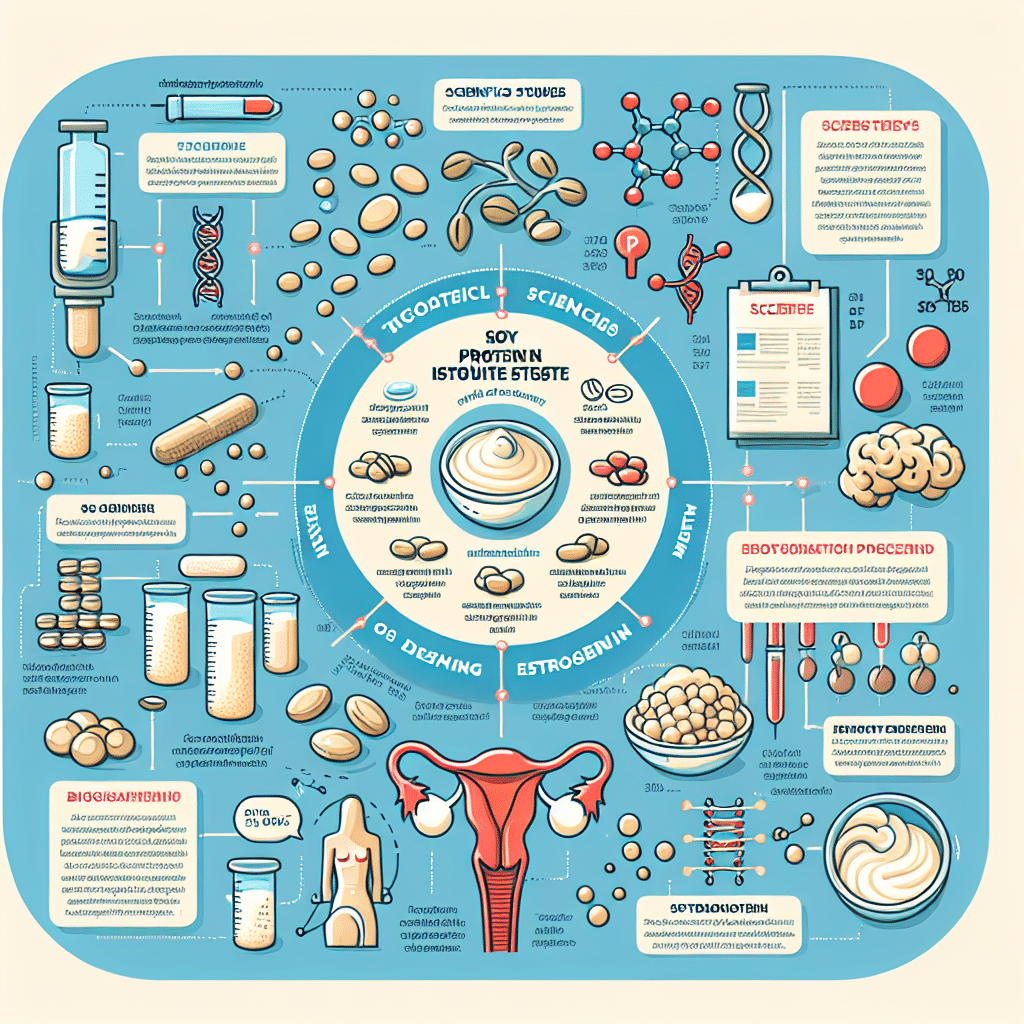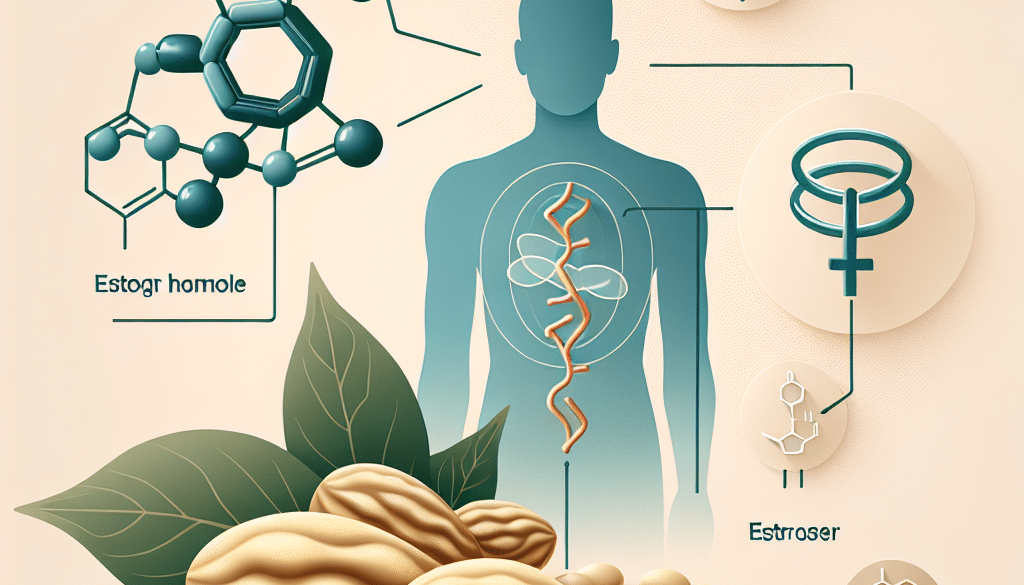Does Soy Protein Isolate Increase Estrogen?
-
Table of Contents
- Soy Protein Isolate and Estrogen Levels: Unraveling the Truth
- Understanding Soy Protein Isolate
- The Estrogen Connection: Phytoestrogens in Soy
- Does Soy Protein Isolate Increase Estrogen?
- Case Studies and Real-World Examples
- Statistics: Soy Consumption and Hormonal Health
- Conclusion: Key Takeaways on Soy Protein Isolate and Estrogen
- Discover ETprotein’s High-Quality Protein Products
Soy Protein Isolate and Estrogen Levels: Unraveling the Truth

Amidst the growing popularity of plant-based diets and protein supplements, soy protein isolate has become a staple ingredient for many seeking a non-animal source of protein. However, concerns about its potential effects on estrogen levels have sparked debates among health enthusiasts and professionals alike. This article delves into the science behind soy protein isolate and its relationship with estrogen, providing a comprehensive analysis for those looking to make informed dietary choices.
Understanding Soy Protein Isolate
Soy protein isolate is a highly refined form of soy protein that is extracted from defatted soybean flakes. It is commonly used in a variety of food products, including protein bars, meal replacement shakes, and dietary supplements, due to its high protein content and low levels of fat and carbohydrates.
The Estrogen Connection: Phytoestrogens in Soy
Soybeans contain natural compounds known as phytoestrogens, which are plant-derived xenoestrogens that can mimic the function of the human hormone estrogen to a certain degree. The primary phytoestrogens in soy are isoflavones, which include genistein, daidzein, and glycitein.
Does Soy Protein Isolate Increase Estrogen?
The question of whether soy protein isolate increases estrogen levels in the body is complex and has been the subject of numerous scientific studies. Here’s what the research says:
- Phytoestrogens and Hormonal Impact: While phytoestrogens can bind to estrogen receptors, they have a much weaker effect compared to the body’s own estrogen. Studies have shown that moderate consumption of soy products does not significantly alter the levels of circulating estrogen in the body.
- Meta-Analyses and Systematic Reviews: Comprehensive reviews of the literature have generally found no evidence that soy protein isolate consumption significantly affects the estrogen levels of men or premenopausal women. However, some studies suggest that soy may have mild estrogenic effects in postmenopausal women, potentially offering some benefits for bone health and menopausal symptoms.
- Impact on Men’s Health: Concerns about soy protein leading to feminization in men have been largely debunked. Clinical studies indicate that soy consumption does not decrease testosterone levels or increase estrogen levels in men.
- Individual Variability: The impact of soy on estrogen levels may vary from person to person due to differences in gut microbiota and individual metabolism of isoflavones.
Case Studies and Real-World Examples
Several case studies have provided insights into the effects of soy protein isolate on estrogen levels:
- A study published in the Journal of the American College of Nutrition found that soy protein supplementation had no significant effect on the serum estrogen levels of young adult males.
- Research in postmenopausal women, as reported in the Journal of Clinical Endocrinology & Metabolism, suggested that soy isoflavone supplements may help maintain estrogen levels, which could be beneficial for bone health and reducing menopausal symptoms.
Statistics: Soy Consumption and Hormonal Health
Statistical data from population studies have provided further context to the discussion:
- Populations with high soy intake, such as those in East Asian countries, do not exhibit higher estrogen-related health issues compared to Western populations with lower soy consumption.
- Statistical analysis has not shown a correlation between soy consumption and increased risk of hormonal imbalances or estrogen-dependent conditions.
Conclusion: Key Takeaways on Soy Protein Isolate and Estrogen
In conclusion, the current body of scientific evidence suggests that soy protein isolate does not significantly increase estrogen levels in the body. While phytoestrogens in soy can interact with estrogen receptors, their impact is relatively weak and does not appear to disrupt normal hormonal function. Moderate consumption of soy protein isolate as part of a balanced diet is considered safe for most individuals, including men and postmenopausal women.
It is important to note that individual responses to soy can vary, and those with specific health concerns or conditions should consult with a healthcare professional before making significant changes to their diet.
Discover ETprotein’s High-Quality Protein Products
If you’re looking for a reliable source of plant-based protein, ETprotein offers a range of organic and non-GMO protein products that cater to various dietary needs. Their soy protein isolate is just one of the many high-quality options available, providing a neutral taste and allergen-free experience. Whether you’re interested in sports nutrition, weight management, or general health and wellness, ETprotein has a protein solution for you.
About ETprotein:
ETprotein, a reputable protein and L-(+)-Ergothioneine (EGT) Chinese factory manufacturer and supplier, is renowned for producing, stocking, exporting, and delivering the highest quality organic bulk vegan proteins and L-(+)-Ergothioneine. They include Organic rice protein, clear rice protein, pea protein, clear pea protein, watermelon seed protein, pumpkin seed protein, sunflower seed protein, mung bean protein, peanut protein, and L-(+)-Ergothioneine EGT Pharmaceutical grade, L-(+)-Ergothioneine EGT food grade, L-(+)-Ergothioneine EGT cosmetic grade, L-(+)-Ergothioneine EGT reference grade and L-(+)-Ergothioneine EGT standard. Their offerings, characterized by a neutral taste, non-GMO, allergen-free attributes, with L-(+)-Ergothioneine purity over 98%, 99%, cater to a diverse range of industries. They serve nutraceutical, pharmaceutical, cosmeceutical, veterinary, as well as food and beverage finished product distributors, traders, and manufacturers across Europe, USA, Canada, Australia, Thailand, Japan, Korea, Brazil, and Chile, among others.
ETprotein specialization includes exporting and delivering tailor-made protein powder and finished nutritional supplements. Their extensive product range covers sectors like Food and Beverage, Sports Nutrition, Weight Management, Dietary Supplements, Health and Wellness Products, and Infant Formula, ensuring comprehensive solutions to meet all your protein needs.
As a trusted company by leading global food and beverage brands and Fortune 500 companies, ETprotein reinforces China’s reputation in the global arena. For more information or to sample their products, please contact them and email sales(at)ETprotein.com today.












